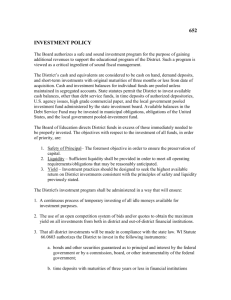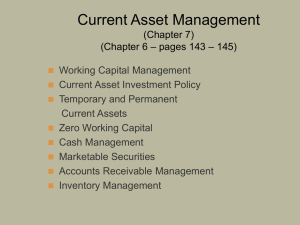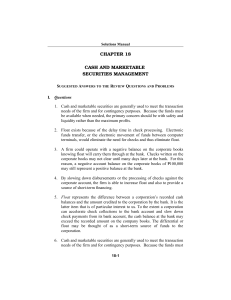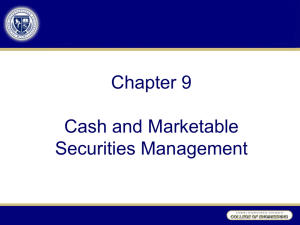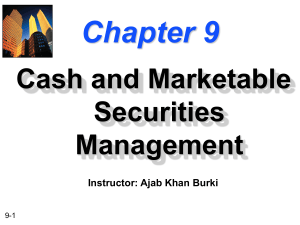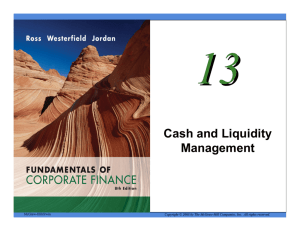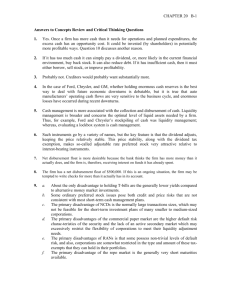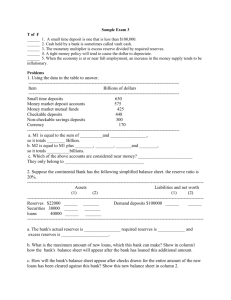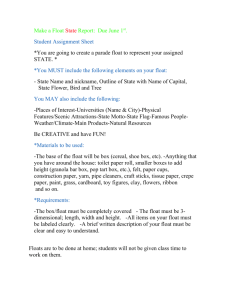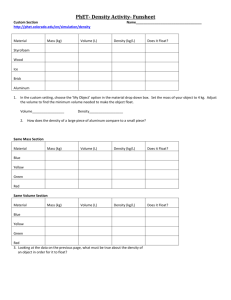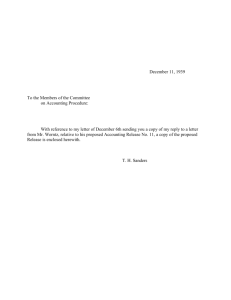Document
advertisement
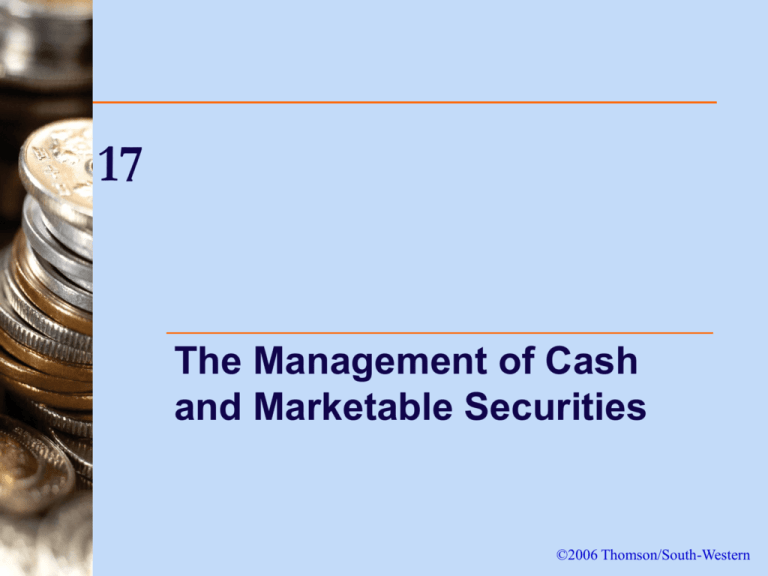
17 The Management of Cash and Marketable Securities ©2006 Thomson/South-Western Introduction This chapter reviews the various cash management decisions made by financial managers. The financial managers must consider the risk vs. return trade-offs characteristic of these decisions. 2 3 Cash and Marketable Securities Are the most liquid of a firm’s assets Cash consists of currency and deposits in checking accounts. Marketable securities consist of S-T investments made with idle cash. 4 Cash Management Function Concerned with determining The optimal size of a firm’s liquid asset balance The most efficient methods of controlling the collection and disbursement of cash The appropriate types and amounts of S-T investments 5 6 Cash Management Decisions Must consider the risk versus expected return trade-offs from alternative policies Check out cash management at this Web site: http://www.bankofamerica.com/ 7 Reasons for Holding Liquid Assets Transactions Precautionary Future requirements Speculative Compensating balances 8 Cash Budget Required because cash inflows and outflows are seldom synchronized First step in cash management Show forecasted receipts and disbursements Show forecast of any cumulative shortages or surpluses Series of cash budgets Daily Weekly Monthly 9 10 Bank Services Maintenance of disbursement and payroll accounts Collection of deposits Lines of credit Term loans Handling of dividend payments Registration and transfer of stock Supply credit information Consulting advice 11 Cash Management Determination of the optimal size Compensating balance requirements establish lower limit Holding excess liquid assets results in an opportunity cost Inadequate liquid balances result in shortage costs Missing cash discounts Deterioration of the firm’s credit rating Higher interest costs Risk of insolvency 12 Cash Collection Opportunities to increase the available cash balance Float Decentralized collection system Lockbox Wire transfers Depository transfer check (DTC) Electronic depository transfer check (EDTC) Courier service Preauthorized check (PAC) 13 Float Positive Negative Speed collection/slow disbursements Components of float Firm shows a higher balance than bank’s Management's goal Balance at bank is greater than the firm’s balance Mail float Processing float Check clearing float A number of systems can be used to reduce the float 14 Lockbox System Local bank Empties the box Deposits payments in the firm’s account Makes a report of the payments Firm makes disbursements of funds in excess of compensating balances Involves significant fees More beneficial for small number of larger deposits Evaluation involves comparison of costs versus benefits of faster collection 15 16 Setting Up Lockboxes This Web site will set up and operate a lock box system: http://www.firstunion.com/index.html 17 Slowing Cash Disbursements Zero-balance system Drafts Transfers cash in the exact amount required for the cleared checks Deposit funds only after the draft is presented for payment. Synchronize deposits with check clearings Requires accurate estimates of float 18 19 Cash Management for Small Firms Less-extensive access to capital markets Cash shortage may be more expensive to rectify. Many small businesses are rapidly growing. May have low balances of cash resources 20 Choosing Marketable Securities Default risk Marketability Sold quickly without significant price concession Maturity Lowest on U.S. Treasury securities Risk and expected return inversely related Shorter maturities have less risk of price fluctuation Rate of return Least important consideration 21 Marketable Securities T-Bills Treasury Issues S-T Municipal Negotiable Securities CDs Repurchase Agreements Banker’s Acceptance Fed Agency Commercial Paper Eurodollar Deposits Money Market Money Market Money market P/S Mutual Funds Accounts 22 Multinational Corporation (MNC) Difficult and costly currency transactions Cash transfer facilities Greater variety of investment opportunities Usually have centralized cash management Tracks cash balances around the world Identifies best sources of S-T borrowing/ lending Use Multilateral netting Cross-border transactions are netted off to minimize costly transactions and misdirected funds. 23
